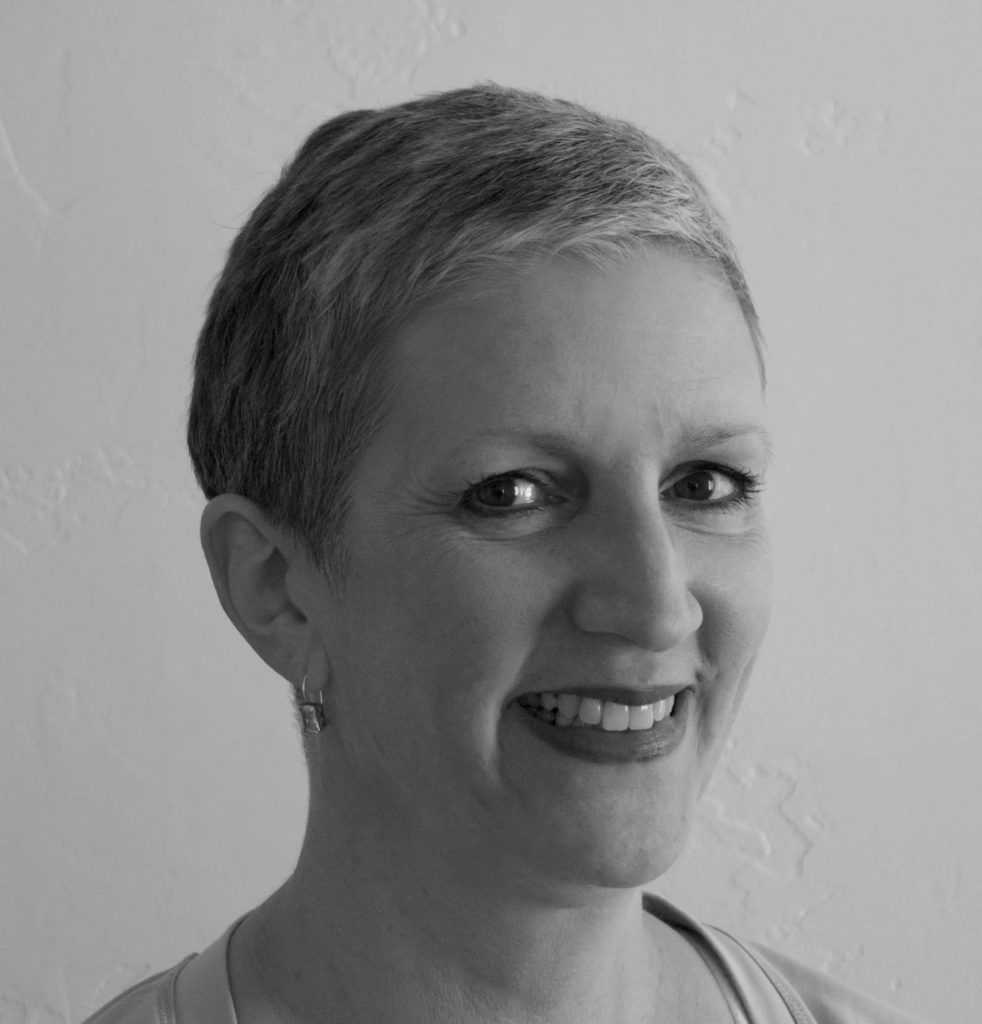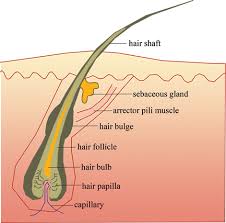In 2013, I lost all of my hair. I had started chemotherapy to treat triple negative Breast Cancer, and after about 3 weeks, my hair started to come out in clumps. Rather than suffer through weeks of slowly becoming bald, I had my husband shave my head. This photo was taken about 1 month after I finished chemotherapy.

Looking back, the experience was devastating, humbling, and strangely illuminating.
Illuminating…? How?
You don’t realize how important your hair is to your identity until it’s not there anymore. I truly did not think it would be a big deal…until it was gone. I know I’m not unique. One of the first questions that many asked me when they found out I had cancer: “Will your treatment cause you to lose your hair?” Not, “Will you survive?” As I said, illuminating experience.
While most people don’t have to face complete hair loss, as we age, 40% of women will experience hair loss. Even hair thinning as we age has been linked to feelings of insecurity, low self-esteem, and being unattractive.
So, let’s take a step back and identify why hair loss occurs. While some causes–such as chemotherapy–are obvious, there are also things that we do to our hair that can ultimately cause hair loss!! The top 3 PREVENTABLE causes for hair loss are:
- Traction alopecia. This is the medical term for wearing tight ponytails, braids, extensions, and weaves that put tension on the hair follicle and ultimately damages them. Consistent stress will slow blood flow and nutrients to the hair follicles and ultimately damage them.
- Overuse of Heat Tools. Hair dryers, curling irons, and straighteners can make your hair dry, prone to breakage, and more likely to fall out. Daily use of these tools is especially problematic.
- Dyeing your hair too often. Over processed hair becomes dry and straw-like. It loses it’s elasticity, breaks, and will make hair look patchy and sparse.
Preventable causes for hair loss are one thing, but there are many hair loss causes that are a part of life. Aging, stress, pregnancy, menopause, and certain medications (like chemotherapy) create hormonal imbalances that contribute to loss of lockets.
No wonder 40% of us experience hair loss!! Obviously, the world has taken notice of this problem. Everywhere you turn, it seems like there is another “hair loss remedy”. Unfortunately, most of these have been created for male pattern baldness, and are not as effective for female hair loss. One of the more popular medications for hair loss even states on the label “Effective for 19% of women”. Hmm, not very good odds.

Many products, such as hair fibers, hair thickening agents, or hair plugs will give you more hair, but do not address the root cause of the problem. Which is… damaged or blocked hair follicles! Taking care of your hair is important, but hair is just dead keratinized cells, so treating your actual hair primarily revolves around keeping it supple and strong so it won’t break off or split. Most hair care products focus on treating the hair only.
However, the follicles are the living part of your hair and they are just below the scalp surface. Keeping the follicles from being clogged (from dead skin or toxic products) is critical. And keeping the follicles healthy and nourished will result in the following equation: Healthy scalp=healthy hair!
As you can see, hair loss can be complex with many causes, and of course, hundreds of solutions! Admittedly, I am NOT a hair care expert, so I know I’m simplifying this issue. Let common sense prevail. To me, the first step in taking care of female hair loss is determining the CAUSE. If the cause is as simple as not wearing a tight ponytail every day, you can change that practice and not worry about spending hundreds of dollars on a solution. Some of those “Life happens” causes may cost some money as you may need a treatment solution.
So… don’t you think it’s smart to address the ROOT of the issue? In my research, someone said,
Our hair and skin are a visual representation of how we take care of ourselves on the inside.
I wholeheartedly believe this. Internal problems are often manifested outwardly. What is your hair loss trying to tell you about your inner health? Are your hair follicles simply undernourished or overloaded by oxidative stress?
I am happy to report that my hair has fully recovered from the chemotherapy assault. It took a few years. Then, in the last year, I found a product line that not only makes my hair feel healthy and soft, but it also cleans and nourishes my hair follicles. It does not strip my natural oils, and has no harsh detergents or chemicals that are toxic. 98% natural. I have to admit, in the past, all natural, to me, meant less effective. Not so with this hair care line. I’d love to share more information with you if you’re interested! Comment below, “Hair Care”, and I will be in touch with you.